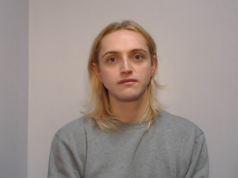The BBC has received complaints regarding Political Editor Laura Kuenssberg from 24 ‘leading’ economists over her comments on the Chancellor’s borrowing.
The BBC’s Director-General, Tim Davie, has received complaints from economic experts for confusing viewers of Politics Live with “inappropriate metaphors”.
Kuenssberg, the senior political correspondent for the BBC, described the UK’s finances on an episode broadcast last week as: “The credit card, the national mortgage, everything absolutely maxed out.”
This was in criticism of Chancellor, Rishi Sunak’s borrowing throughout the pandemic – she added that there was “no money” left, as a result of the Treasury’s response to dealing with the economic cost of coronavirus.

These comments were made on the same day that Sunak delivered his spending review in the Commons; his statement warned that the UK’s “economic emergency has only just begun”.
The Government have recently come under spending criticism after the Health Secretary, Matt Hancock, suggested that nurses may be included in the public sector pay freezes, despite their efforts throughout the pandemic.
The 24 outraged economists wrote in a letter to Davie: “The BBC has a responsibility to ensure that its coverage is of the utmost accuracy.”

They also wrote that Kuenssberg’s metaphor “misrepresents the financial constraints facing the UK Government and reproduces a number of misconceptions surrounding macroeconomics and the public finances.
“Maxing out the credit card would imply that the Government is approaching a hard limit on its ability to borrow.
“This is not the case.”
Despite their concerns, the letter suggested it was not trying to be critical of the senior BBC journalist, but of the metaphor that was used because it was misleading to the public.
Its authors added: “She is one of the most senior broadcasters in the country – with an audience of millions every week – and therefore sets a standard across the media.”



